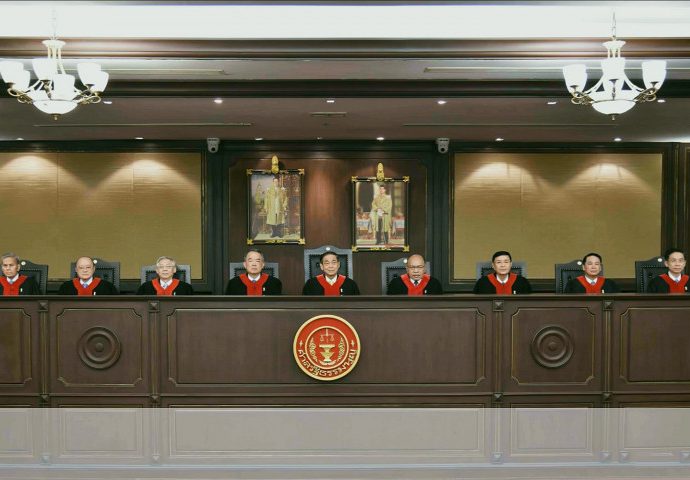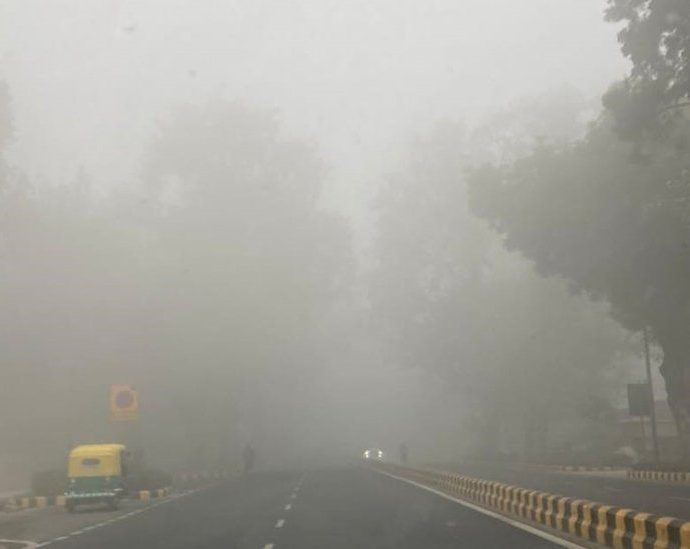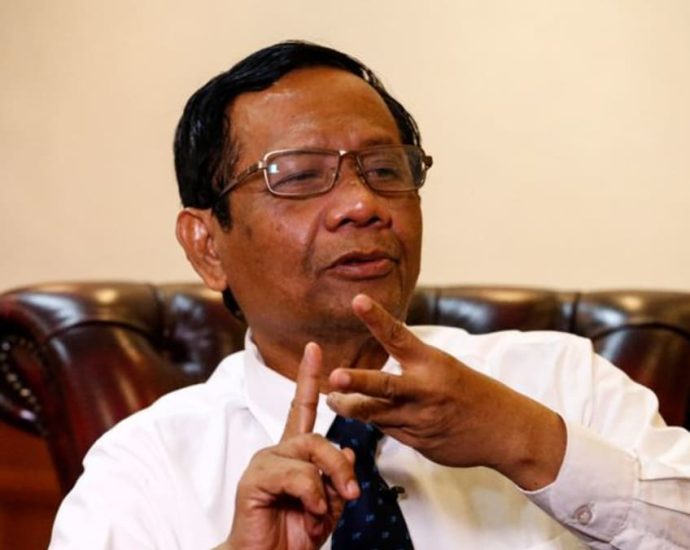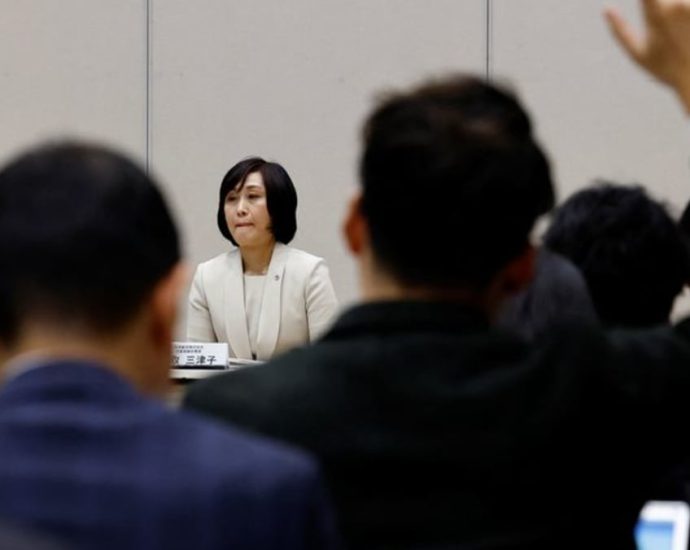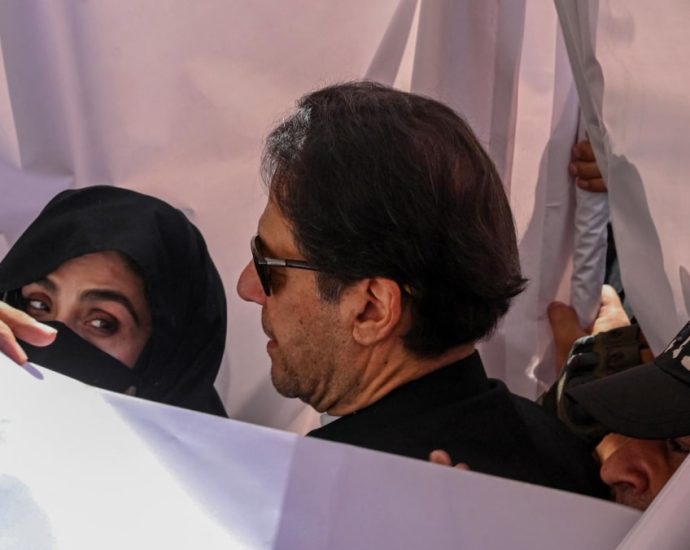Thailand: Popular reformist party Move Forward could be dissolved after court loss
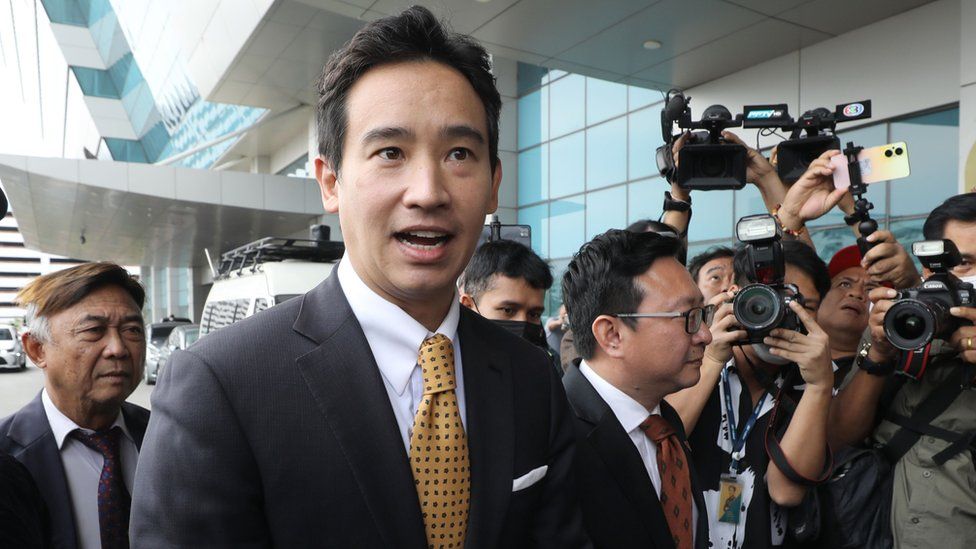 EPA
EPAThe Thai pro-democracy party which won the most votes at last year’s election could now be forced to dissolve after a court ruled its key policy illegal.
Move Forward is not in government but its promises to campaign on changing royal defamation laws violated the constitution, a Thai court has found.
Such lese majeste laws have increasingly been used to stifle political criticism, activists say.
It is possible Move Forward’s leader could now be banned from politics.
Pita Limjaroenrat, a young, Harvard-educated politician, had been viewed as a significant threat to Thailand’s monarchy and military-aligned elite, winning over a majority of voters in 2023 with his party’s promises to rein in their influence.
Last week he had survived another legal case aimed at disqualifying him from parliament.
But he and his party failed to win the crucial second case on Wednesday on their key policy platform.
The Constitutional Court ruled that Move Forward’s campaign promise to amend the lese majeste law amounted to an attempt to overthrow the entire political system in Thailand.
The verdict carries no immediate penalty, but is widely expected to be used to justify dissolving Move Forward, and banning its leaders from politics for several years.
By ruling this way, the court has in effect made the lese majeste law untouchable – even by an elected parliament.
The law has been widely criticised for stifling freedom of expression in Thailand and for its harsh operation.
Earlier this month, a 30-year-old man in Bangkok was sentenced to 50 years in jail for criticising the Thai monarchy.
And more than 260 people have been charged under the law since November 2020 – a date stamp tied to King Maha Vajiralongkorn beginning his reign.
Wednesday’s ruling in the Thai courts also sends a clear message that any discussion of the powerful monarchy will not be permitted.
Four years ago Move Forward’s previous incarnation, a party called Future Forward, was also dissolved after doing unexpectedly well in an election.
That action by the Constitutional Court set off months of student-led protests, in which unprecedented demands were made for changes to the monarchy.
Today, many of the leaders of those protests find themselves fighting charges under the lese majeste law, and could face many years in prison.
Thai court rules election winners violated constitution on royal insults law
BANGKOK: A Thai court on Wednesday (Jan 31) ruled the biggest party in parliament had violated the constitution in seeking to change a law against insulting the monarchy, in what could set a precedent for any future review of one of the world’s strictest lese majeste laws. The Move Forward PartyContinue Reading
Thai court orders end to Move Forward Party’s bid to reform royal insult law
Pita – who stepped down as party leader last year – returned to parliament last week after the same court cleared him of breaching election laws in a case that could have seen him barred from politics. Thanathorn Juangroongruangkit, the former leader of Future Forward Party – an MFP forerunnerContinue Reading
MFP ordered to drop plans to amend lese-majeste law
Constitutional Court says campaigning to amend Section 112 amounts to attempting to overthrow constitutional monarchy

The Constitutional Court has ordered the Move Forward Party to cease all attempts to amend the lese-majeste law, saying that campaigning on the issue is considered an attempt to overthrow the constitutional monarchy.
The ruling on Wednesday against the party that won the most votes — 14.4 million — in the May 2023 election could set a precedent for any future review of one of the world’s strictest royal defamation laws.
Move Forward said in a statement that it was reviewing the ruling with its legal team and would have a response shortly.
The court had no remit in this particular case to prescribe punishments for Move Forward, but some politicians have suggested legal efforts could now begun to seek the dissolution of the party and political bans for its leaders.
In a worst-case scenario, Human Rights Watch noted, 44 Move Forward MPs who signed the proposal to amend Section 112, including former leader Pita Limjaroenrat, could face a lifetime ban from politics for breaching the parliamentarians’ code of ethics.
The lese-majeste law, Section 112 of the Criminal Code, carries penalties ranging from 3 to 15 years in jail for each perceived insult of the king, queen, heir to the throne or regent.
Move Forward’s proposed amendments to Section 112 included reduced sentences, as well as a requirement that a complaint must be filed by the royal household.
Currently, anyone can file a complaint of lese-majeste against anyone else, and the police are obliged to investigate. As a result, Move Forward and others have argued, Section 112 is used frequently for political reasons.
The party’s stand has outraged conservatives and was also cited as the main reason its attempt to form a government last year was torpedoed by the non-elected Senate.
Move Forward’s predecessor, Future Forward, was disbanded for violating campaign funding rules and its former leader and prime minister candidate Thanathorn Juangroongruangkit was disqualified over a shareholding issue.
Before the ruling was announced on Wednesday, Mr Thanathorn said he believed lese-majeste should be up for discussion.
“The law is not a fax paper sent from God. It’s written by human hands, therefore people can amend it,” he told reporters.
“If the lawmakers cannot amend the laws, I think something is wrong in the country.”
Critics say Section 112 has been interpreted so broadly in recent years as to shield the the royal family from any kind of criticism or mockery.
Earlier this month a man was sentenced to 50 years in prison for a series of Facebook posts deemed insulting to the monarchy.
And in March last year a man was jailed for two years for selling satirical calendars featuring rubber ducks that a court said defamed the king.
The yellow bath toys were an unexpected symbol of mass youth-led street protests that shook Bangkok in 2020.
According to data from Thai Lawyers for Human Rights to Dec 31 last year, 1,938 people have been prosecuted for political participation and expression since the beginning of the Free Youth protests in July 2020. At least 262 are facing lese-majeste charges under Section 112 and 138 have been charged with sedition under Section 116. Nine cases under Section 116 came before the courts in December and all were dismissed.
Delhi fog: Poor visibility disrupts life and travel in Indian capital
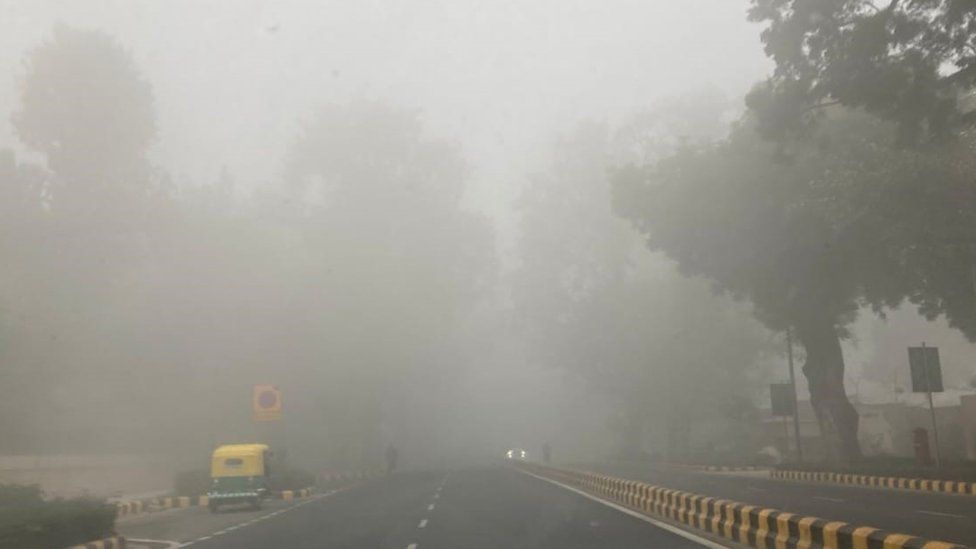
Dense fog has caused travel chaos in India’s capital Delhi, with dozens of flights and trains affected.
Report say 50 flights and nearly two dozen trains have been delayed.
According to the flight tracking app flightradar24, hundreds of departing flights were delayed by 25 minutes on an average and flight arrivals were delayed by eight minutes.
But passengers have been complaining of being stranded for hours at the airport.
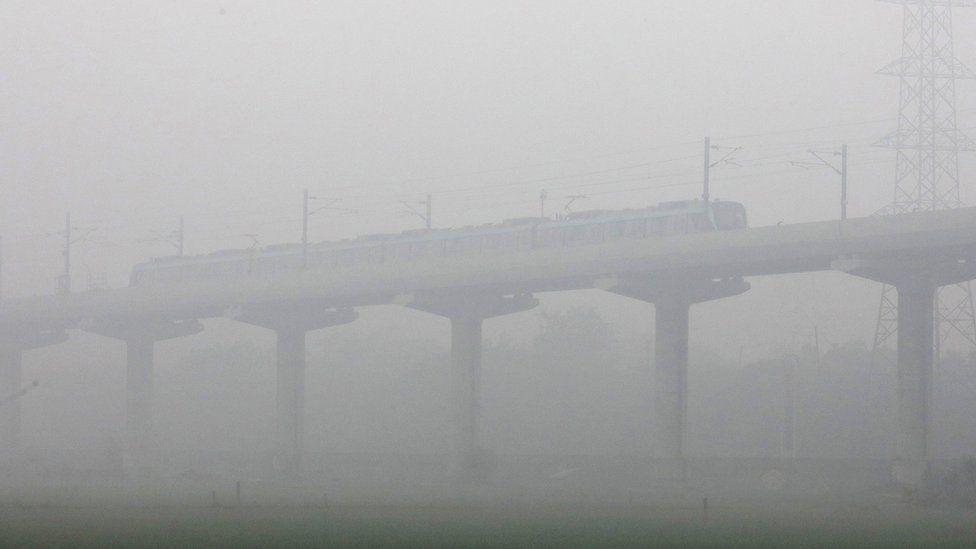
Delhi airport authorities had issued a flight advisory on Monday, asking passengers to contact their airlines to check for updated flight information.
“While landings and take-offs continue at Delhi airport, flights that are not CAT III compliant may get affected,” the advisory read. CAT III runways make it possible for planes to land during poor visibility.
In December, fog and poor visibility in the city had resulted in more than 100 flights being delayed. The airport witnessed massive travel chaos in January too, with dozens of people taking to social media to complain about delays and cancellations.
On Wednesday morning, videos and photos from different parts of Delhi and suburbs showed a blanket of fog covering many roads and obscuring buildings. The Indian Meteorological Department (IMD) said the visibility had dropped to zero in several localities.
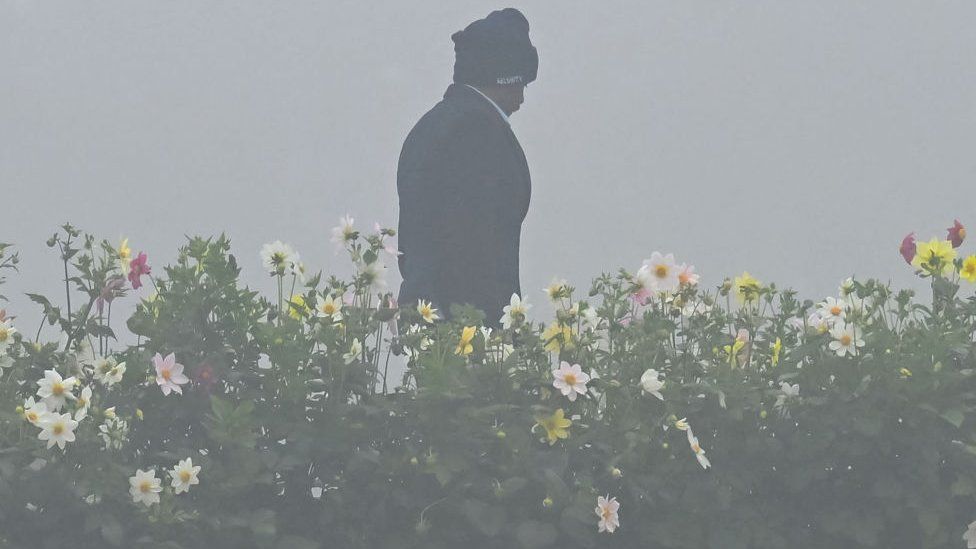
The IMD has predicted light rains or thundershowers, accompanied by gusty winds, on Wednesday. The department has also predicted moderate fog for the next few days.
Dense fog is common in Delhi and the rest of north India during winters, but the cold in Delhi this season has tumbled many records.
An IMD report says Delhi has experienced the coldest January in 13 years with maximum temperature recorded at 17.7C. The second coldest January was nine years ago – in 2015 – when a maximum temperature of 17.9C was recorded in the city. Nights too have been coldest this year after 2013, the report adds.

Read more India stories from the BBC:
- Indian navy rescues two boats from pirates in two days
- Fifteen sentenced to death for India political murder
- India denies Pakistan’s claim of targeted killings
- Why India wants to fence its troubled Myanmar border
- The Sufi shrine caught up in a religious row in India
- Who invented butter chicken? Creamy dish centre of court battle

Indonesia chief security minister to tender resignation ‘soon’
JAKARTA: Indonesia’s Chief Security Minister and vice presidential candidate Mahfud MD on Wednesday (Jan 31) said that he would tender his resignation to President Joko Widodo once he has the chance to meet the president. The president is scheduled to be in Indonesia’s capital Jakarta on Thursday. Mahfud did notContinue Reading
India snow leopards: First-ever survey puts population at 718
 SAPI/ Wildlife Institute of India
SAPI/ Wildlife Institute of India
India is home to 718 snow leopards, according to the first-ever survey of the animal in the country, the federal environment ministry has said.
This means that Indian snow leopards account for roughly 10-15% of the big cat’s global population.
The snow leopard is classified as vulnerable by the International Union for Conservation of Nature.
Its numbers in the wild face multiple threats – from habitat loss and poaching to infrastructure development.
The survey – Snow Leopard Population Assessment in India (SPAI) Program – was done from 2019 to 2023.
It was conducted as part of the Population Assessment of the World’s Snow Leopards (Paws), a global effort to determine the snow leopard’s numbers.
The survey in India covered roughly 120,000 sq km (46,332 sq miles) of the animal’s habitat across the trans-Himalayan region.
“Until recent years, the snow leopard range in India was undefined due to a lack of extensive nationwide assessments for this vulnerable species,” the environment ministry said in a statement.

The survey covered 70% of the potential snow leopard habitat in the country, including the regions of Ladakh and Jammu and Kashmir, the states of Himachal Pradesh and Uttarakhand in northern India, and Sikkim and Arunachal Pradesh in the northeast.
After camera traps identified 214 individual snow leopards, surveyors analysed leopard trails and other data to estimate the animal’s population at 718.
The report says that understanding the precise population of the animal is important because of its role as the apex predator in the Himalayan ecosystem.
The snow leopard population can indicate health of the ecosystem as well as help identify potential threats to its habitat and shifts caused by climate change, it adds.
“The integrity of these high-altitude habitats is intertwined with the socio-cultural fabric of local communities and the economic sustenance of populations residing downstream.”
The report says that 70% of the land used by the animal is unprotected and provides critical habitat for wildlife.
The animal will need consistent monitoring to ensure its long-term survival, it adds.

Read more India stories from the BBC:
- Dense fog disrupts life and travel in India capital
- Indian navy rescues two boats from pirates in two days
- Fifteen sentenced to death for India political murder
- India denies Pakistan’s claim of targeted killings
- Why India wants to fence its troubled Myanmar border
- The Sufi shrine caught up in a religious row in India

Related Topics
Japan Inc opens door to more women directors, but managers remain rare
Tashiro is one of the most senior women in Japanese finance, where, like many industries, the top echelons remain overwhelmingly male. Women account for only 13.4 per cent of directors and executive officers at the 1,836 firms listed on the TSE’s “prime” market, and of these a mere 13 perContinue Reading
Pakistan ex-PM Imran Khan and wife get 14 years jail in graft case
ISLAMABAD, Pakistan: Former Pakistan prime minister Imran Khan and his wife were sentenced on Wednesday (Jan 31) to 14 years in jail after being found guilty of graft in a case involving gifts he received while premier. The verdict, a week before national elections, comes a day after Khan wasContinue Reading
Myanmar hands over three junta-backed Chinese warlords to Beijing
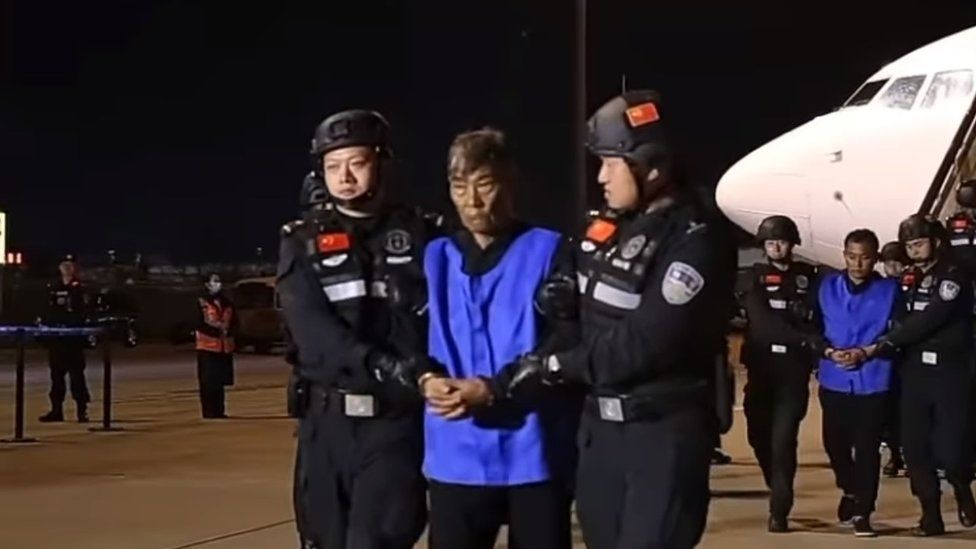 Eastern Broadcasting Company
Eastern Broadcasting CompanyMyanmar has handed over three Chinese warlords to Beijing, who were notorious for running scam centres that trapped more than 100,000 foreign nationals.
Bai Suocheng, Wei Chaoren and Liu Zhengxiang led three of four families which ruled Laukkaing on Myanmar’s north-eastern border with China.
They were were taken to China on a chartered flight, with seven others.
This is the latest twist in the stunning downfall of the military-backed Chinese mafia in Myanmar.
And it’s yet another blow for Myanmar’s military regime, whose power is waning.
Myanmar’s army, which had been locked in a brutal stalemate since it sized power in early 2021, is now losing as it battles well-organised ethnic armies on more than one front.
General Min Aung Hlaing is known to have supported the Chinese mafia in Laukkaing. For years, China had been pressing his regime to rein in the scam centres but with little success.
China’s unease encouraged three insurgent armies to launch coordinated attacks against the military in late October last year – and hastened the fall of the mafia families.
The four families took over control of Laukkaing in 2009. Liu Guoxi, who led the fourth family, died in 2020.
Over the years, their reign turned a poor Burmese border town into a den of criminal activity, especially for lucrative scam centres. The UN estimates that hundreds of thousand of people have been trafficked into these centres across South East Asia.
“For a long time, multiple criminal groups… in northern Myanmar have openly organised armed fraud gangs and carried out telecom fraud crimes against Chinese citizens,” China’s Ministry of Public Security said on Tuesday. Telecom fraud refers to the scams that people trapped in the scam centres were being forced to run.
They are also accused of “multiple and severe violent crimes”, the ministry said, such as murder, assault and illegal detention.
In December, Beijing issued a public reward for these men and others in their network, describing them as “ring leaders” and sent a team to Myanmar to work with local authorities there.
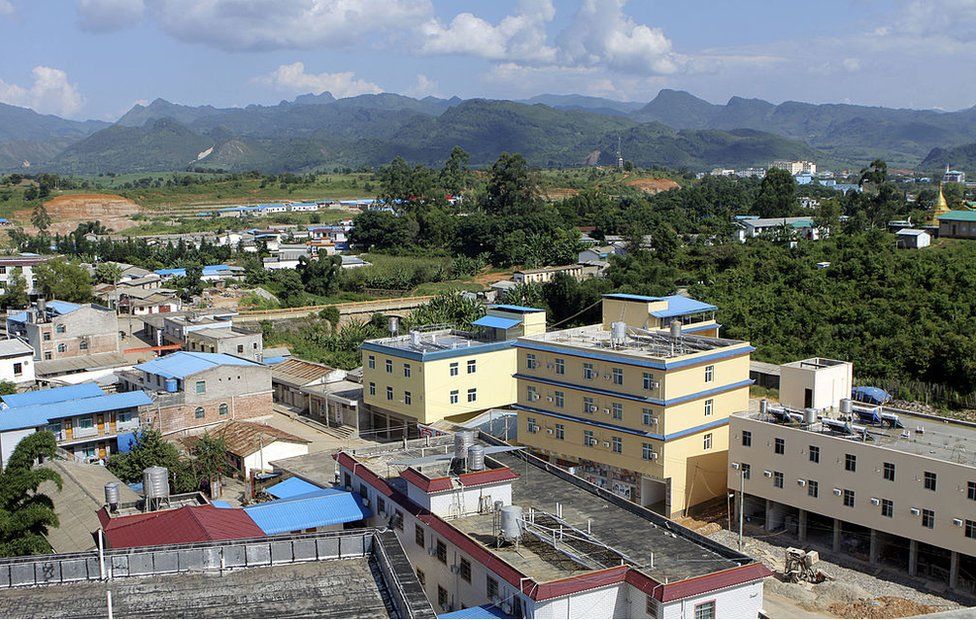
A vulnerable Myanmar army allowed China the opportunity to crack down on the scam compounds in Laukkaing.
About 44,000 people suspected to be involved in the scam centres have been handed over to China from Myanmar so far, the Ministry of Public Security said.
But China called Tuesday’s development – the arrest of the three heads of the mafia families – a “landmark achievement”.
Footage aired on Chinese-language TV channels show dozens of Swat (Special Weapons and Tactics Unit) officers escorting suspects down the plane in Kunming and into police vans.

The Godfather(s) of Laukkaing
By Jonathan Head
With their close ties to the military, the Godfather-esque “four families” in Laukkaing developed extensive business networks in Myanmar, with stakes in mining, energy, infrastructure and casinos in other countries like Cambodia. They established links with organised crime networks in Macao and south-eastern China.
Under them the remote, impoverished backwater of Laukkaing was transformed into a rowdy casino hub of gaudy high-rise towers and seedy red-light districts.
Initially developed to take advantage of Chinese demand for gambling, which is illegal in China and many other neighbouring countries, Laukkaing’s casinos evolved into a lucrative front for money laundering, trafficking and in particular for dozens of scam centres.
More than 100,000 foreign nationals, many of them Chinese, were estimated to have been lured to these scam centres, where they were effectively imprisoned and forced to work long hours running sophisticated online fraud operations targeting victims all over the world.
Laukkaing took on the character of a Wild West boom town, where anything goes and anything can be bought and sold. There were occasional gun battles between rival scam centres, and powerful people kept lions and tigers as pets.
Read more on the ignominious end to a story that began in the days of revolution, but turned into one of drugs, gambling, and greed.
Related Topics
-
-
9 November 2023
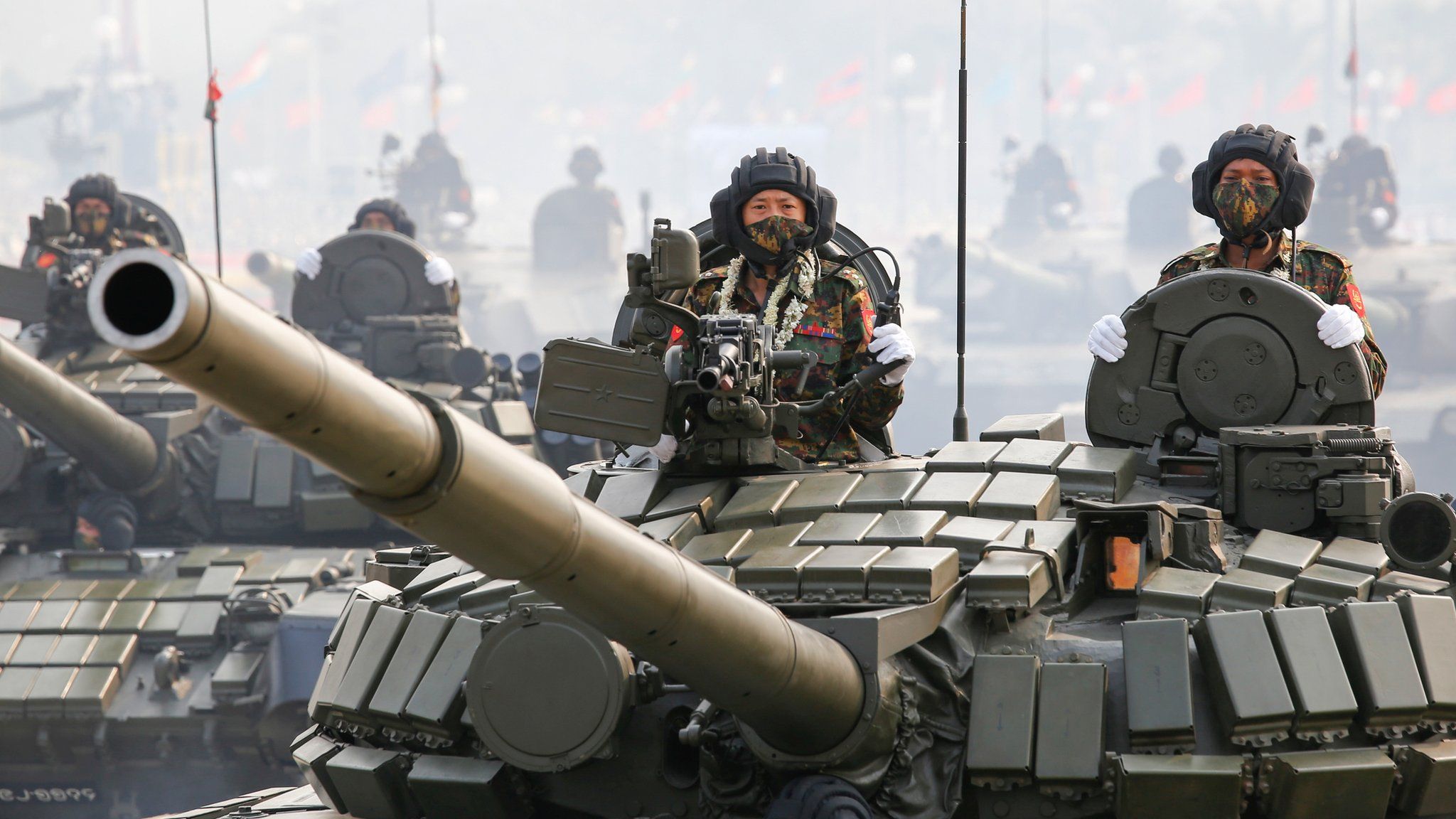
-
-
-
18 June 2023
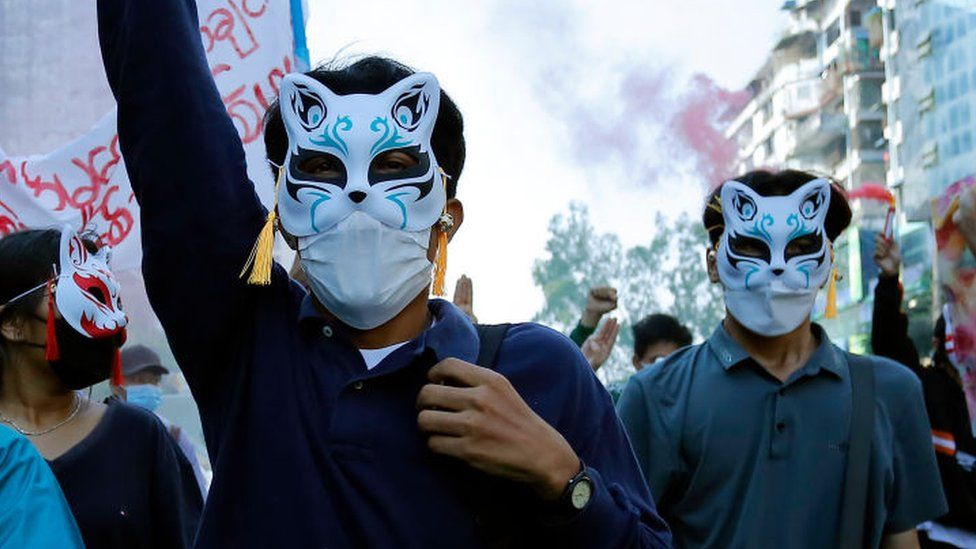
-
-
-
17 April 2023
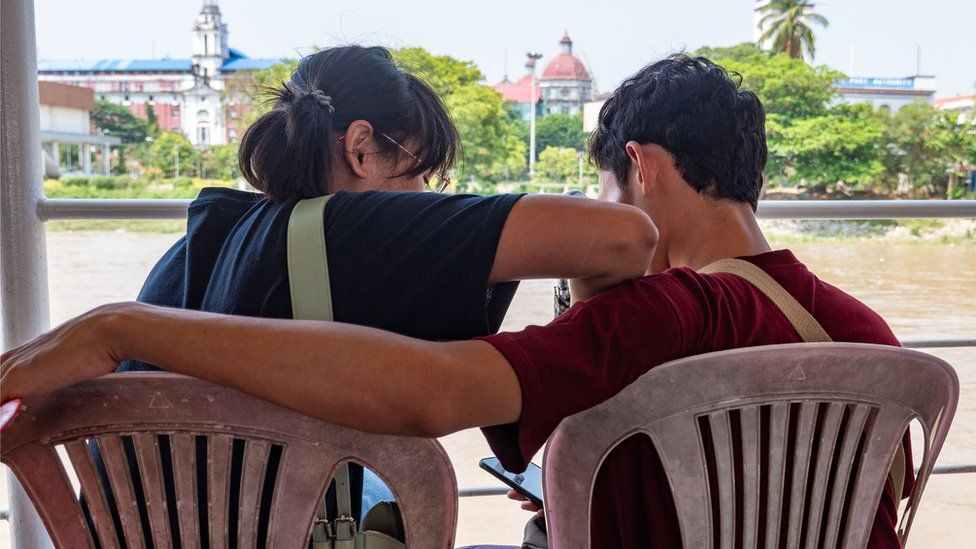
-




